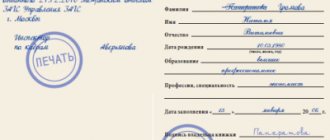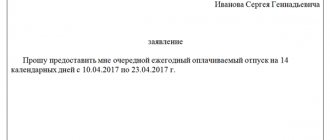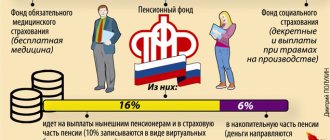- Irina Shishkina
- 23 958
The law implies that officially employed citizens receive commensurate payment for work performed. The composition of the salary, as a rule, includes the main (mandatory) part, calculated at a rate or determined by contract, and a bonus part, the size of which is determined according to various criteria. The employer’s right to remunerate the employee is prescribed in the Labor Code - Art. 191. Bonus payments are motivational - stimulating factors and can be excluded in whole or in part if the employee fails to fulfill the conditions for receiving them. If a controversial situation arises, employees need to know: under what circumstances and on what basis the employer has the right to deprive bonuses.
Basic Concepts
A bonus is an incentive payment to an employee, which is transferred along with wages or separately from it. It can be one-time or systematic. When determining the possibility of calculating payments, the employee’s fulfillment or non-fulfillment of his obligations and labor plan is taken into account.
Allowances are considered additional to wages. They are not mandatory as they are voluntary. Therefore, the employer has the right to decide for himself whether or not to accrue an additional payment.
The procedure for depriving an employee of a bonus according to the Labor Code of the Russian Federation is carried out in case of a disciplinary offense. It may not be paid in full or may be reduced by a certain portion. The measure is a penalty for failure to comply with internal regulations and is not related to disciplinary action.
The award is variable. If there are grounds, management may not pay the funds. In this case, the reasons for the refusal should be reflected in local documentation or regulations on bonuses for employees.
Grounds for payment of bonus
Pros of depreciation
In addition to the obvious disadvantages of deprivation of bonuses, depreciation also has its advantages:
- Improves labor discipline;
- Increases the responsibility of both employees and management;
- Allows you to highlight those employees who really deserve the bonus.
The conditions for receiving a bonus are fixed by an internal act of the company, these can be:
- employment contract,
- collective agreement,
- regulations on bonuses for employees,
- wage regulations.
Bonus criteria are spelled out very clearly, and the employee gets acquainted with them upon signature. The grounds for paying a bonus may be:
- No collections in the accounting period (month, quarter, half year, year).
- Fulfillment of planned indicators.
- Exceeding the norm.
- No delays.
- Fulfillment of duties stipulated by the employment contract.
If the local regulation does not indicate that the bonus is not paid, for example, in the event of a reprimand, then this will be an illegal deprivation of the bonus.
Labor Code norms
The Labor Code of the Russian Federation does not contain articles that would prescribe the procedure for depriving a bonus. After all, the law provides for only three punishments for disciplinary offenses.
Penalties are reflected in Article 192 of the Labor Code of the Russian Federation and are:
- warning;
- rebuke;
- dismissal.
Cancellation of incentives is not included in this list.
The Labor Code of the Russian Federation gives the employer the right to apply each of the punishments in the course of organizing work activities. They can be used in internal documentation.
It is recommended not to specify the bonus deduction procedure in local documents. It is worth specifying the conditions under which payment is provided. In such a case, the employee who fails to comply may legally be deprived of payment.
Grounds for deprivation of bonuses - why are bonuses deprived at work?
What can you deprive of a bonus for? There are many reasons for non-payment of premiums. The reasons most often indicated in a regulatory act are:
- whether the employee has received a disciplinary sanction during the bonus period;
- the presence of a disciplinary offense during the bonus period (regardless of whether it entailed disciplinary action);
- dismissal during the bonus period;
- bonus period not fully worked out.
In addition, deprivation of a bonus can be carried out by decision of the manager, the right to which:
- or is enshrined in the internal regulatory act on bonuses as one or the only reason for non-payment of bonuses;
- or appears if the normative act on bonuses does not contain a description of the procedure for depriving the bonus.
The employer's participation in the reduction of bonuses for the reasons listed in the normative act can also be expressed in the fact that it determines what part of the total bonus amount the employee is deprived of the bonus.
In what cases is it used?
When an employer denies an employee a bonus, he is obliged to clearly formulate the reasons for such a decision. Most often, employees are deprived of these payments for the following violations:
- Violation of disciplinary and behavioral standards, for example: neglect of safety requirements;
- absence from work for 4 or more hours without warning;
- causing damage to the organization’s property, which resulted in losses;
- absence from work without a valid reason;
- failure to comply with management orders;
- reporting to work under the influence of alcohol or drugs.
This is also important to know:
Investigation of industrial accidents: which accidents are subject to investigation and recording
In addition to the listed violations, a person may be subject to penalties for minor violations, for example, for being late or leaving work before the end of the working day. As a rule, in these cases partial depreciation is applied.
Article 192 of the Labor Code of the Russian Federation states that for one violation an employee can be subject to only one type of penalty . For example, an employer does not have the right to simultaneously reprimand and reprimand a violator. In addition, when imposing a punishment, management must take into account the severity of the violation, the presence of consequences and other circumstances.
Deprivation of a bonus: grounds, registration procedure and appeal
A bonus is an incentive for a person for special services to the company. It is an incentive bonus and not a mandatory payment. When hiring a person, they must be warned, and when concluding a contract, the conditions must be documented, when and for what achievements the bonus will be paid, as well as in what situations the employee may lose it.
Grounds for depriving an employee of a bonus under the law
There are completely legal cases when this payment can be deprived. At the same time, deprivation of a bonus does not apply to disciplinary sanctions, but may be an addition to them.
Article 192 of the Labor Code names three disciplinary sanctions: reprimand, reprimand and dismissal. In case of violation, only one can be applied with or without deprivation of the bonus.
An employee risks receiving such a punishment and being left without a significant part of his money in the following situations:
- deprivation of bonus for being late for work;
- appearing at work drunk;
- violation of safety regulations;
- recorded facts of theft;
- transfer of confidential information;
- failure to fulfill duties;
- deterioration of working conditions for the team;
- absenteeism.
Misdemeanors come in a variety of forms; they are considered individually in relation to each person, based on his experience, skills and position.
In what cases is deprivation of bonuses illegal?
It is the employer’s responsibility to monitor the availability in the company’s regulations of complete information about the bonus part: when it is due, the amount of accrual, for what merits, depends on the position or not. The reasons why the bonus will not be paid in full or in part must be indicated. When registering, the employee must be informed of such nuances.
Sometimes the employment contract states that the bonus is included in the monthly salary, in which case it cannot be deducted under any circumstances.
Another point when the legality of deprivation of a bonus is called into question is when the enterprise’s acts do not indicate the reasons and procedure for deprivation of bonuses.
Even a reduction in part of earnings must be prescribed: for example, for being late more than three times, an employee will lose half of the bonus.
IMPORTANT! If the premium has already been paid, it cannot be withheld again during subsequent payments, in another month or year.
Violations in the payment of bonuses are an administrative crime (Article 5.27 of the Administrative Code), as a result of which the employer will be required to pay a fine. Individuals and individual entrepreneurs - 1-5 thousand rubles, organizations - 30-50 thousand rubles.
If in the future similar violations are recorded by the same company or person, the amount of punishment will increase to 10-20 and 50-70 thousand rubles, respectively. In this case, the manager may lose the right to work for a three-year period.
The underpaid funds will be returned to the staff, and they will also receive the right to compensation, the amount of which is established by the Central Bank of the Russian Federation and is one three hundredth of the refinancing rate.
Features of depreciation
Payment of bonuses can be regular - once a month, quarter, year, or maybe one-time, as a reward for work or a gift on the occasion of a holiday. Information about regular bonuses must be recorded in documents: contracts, regulations, acts, etc. Accurately filling out the following items will help you avoid controversial issues in the future:
- Reason and date of appointment. There must be clarification of what the bonus is for the employer: a right or an obligation.
- How will the fulfillment of all conditions and compliance with the grounds be verified?
- Amount: This can be an exact amount or a percentage of the salary.
- How will the deduction be made in case of violation, will the employee be able to avoid punishment.
- List of required documents for registration for issuance or refusal.
- Appointment of the person responsible for the implementation of this decision.
The director issues an order to assign a bonus, based on reports from the heads of various departments.
He may cut the amount of additional payments if, for example, some department did not fulfill the plan, and the bonus may not be awarded to either one employee or the entire department at once.
But for non-compliance with the dress code or personal relationships in the service, if they do not interfere with the work process and do not cause material damage, they have no right to deprive the bonus.
Procedure for registering a bonus
The employee violated the rules, so he is required to provide an explanation in writing, in free form. He must write the note within two days. If an employee gives an explanation on time, then he may not be punished, but in case of refusal, a penalty will most likely follow. For this purpose, an act is drawn up, and then a special order.
ATTENTION! If the offender falls ill or is injured and is unable to provide an explanation within the specified time frame, then a special commission takes over the case. These people conduct an investigation, record everything in detail and make a verdict: to punish the employee or not.
There are no clear rules for writing a memo. As a standard, it is addressed to the director or head of the department. The employee indicates his data, position and gives an explanation for the reason why he violated the order.
After the order to impose punishment, an official note is drawn up, which also indicates all the details of the offender, the basis for the punishment, the number and date of the order and the amount of the penalty.
Then another order is drawn up: to deprive the bonus of 100 percent, 50 percent, etc. The order on depreciation is issued in free form on letterhead or on a regular A4 sheet.
There are general rules for filling it out, as for other personnel documents. It states:
- name of company;
- the name of the document itself and its number in order;
- Date of preparation;
- disciplinary offense;
- amount of recovery;
- manager's signature;
- the signature of one or more punished persons, with which they certify that they have familiarized themselves with the document, then put the date of familiarization.
A sample order can be downloaded here.
Appeal against unjustified deprivation of a bonus
If an employee does not agree or doubts the legality of the sanction, he can send a complaint to the labor inspectorate or file a claim in court. This can be done within three months after reading the order.
The inspection is obliged to conduct an inspection of this fact, that is, to check the grounds for punishment and the correctness of filling out the documents mentioned above. Then the severity of the violation, the amount of damage caused to the company, and whether it is worth such a punishment are determined.
If it was decided to go to court, the plaintiff must provide evidence that he was punished illegally. For example, present a rental agreement that specifies the procedure for assigning a bonus or, conversely, there is no information about this at all, which is also wrong. You will also need copies of documents confirming the deprivation of the bonus. The employee has the right to receive them upon request within three days.
(: 2 , average rating: 5.00 out of 5) Loading…
Source: https://o-kadrah.ru/oplata-truda/mogut-li-lishit-premii-na-100-protsentov
Who should not be deprived
At the legislative level, there are categories of workers who are prohibited from being deprived of bonuses. It is believed that an employer cannot impose several disciplinary measures against an employee. For example, it is prohibited to deprive an employee of a bonus and impose an additional fine.
Sometimes management deprives an employee of bonuses only because he came to work in clothes that do not comply with the dress code. Such actions by management are considered illegal.
A person's clothing cannot in any way affect the quality of the work performed. Of course, if a special form is not provided for by safety regulations. It is the right of the employer to assign or deny a bonus. There are no clearer deprivation rules.
Rules and step-by-step procedure for depriving an employee of a bonus
Step-by-step instructions are provided for depriving the bonus.
The employer must fulfill all the points provided for by law:
Free legal consultation We will answer your question in 5 minutes!
Ask a Question
Free legal consultation
We will answer your question in 5 minutes!
Ask a Question
- First, an act must be received reflecting the employee’s violations of his labor obligations. Most often, the memorandum is drawn up by the head of the structural unit. It sets out the grounds for non-awarding the premium.
- It is important to consider the list of criteria according to which incentive bonuses are calculated. The list may be specified in internal regulations. It is best to indicate them in the employment contract, which is concluded at the time the employee is hired.
- The employee is required to write an explanatory note. In it, he must indicate why he violated the rules and confirm that he did not fulfill the terms of the employment contract.
- The received documentation, memo and explanatory note, is sent to the department that calculates bonuses. Most often, accountants or personnel officers are in charge of these issues in an institution. They study the papers and decide on the punishment for the employee. They also determine the exacting measure.
- After this, an order is prepared in accordance with the approved bonus regulations. After all, any withholding must have documentary evidence.
- After publication, the document is handed over to the employee for review. After reading it, he must certify it with his signature. The terms for deprivation of the bonus must be indicated.
This is also important to know:
How to write a statement to the prosecutor’s office: examples and samples
If this procedure is followed by the employer, then he will not suffer negative consequences. Therefore, the reduction in bonuses will be considered legal.
Making an order
There is no standard form for a depreciation order. In practice, this administrative document, as a rule, is drawn up according to the general template adopted for drawing up documentation at the enterprise.
The approximate procedure for completing this order is as follows:
- all the necessary details of the organization are indicated in the “header” of the document;
- the “body” of the document contains the full name of the order;
- The full initials of the employee in respect of whom the document is being drawn up must be written down, and his position must also be indicated;
- Next, the fundamental motive for deprivation of bonuses is stated; in the case of partial deprivation of bonuses, the amount of the fine is indicated;
- after this, all the provisions and regulations of the organization are written down, on the basis of which the decision was made to deprive the employee of the bonus;
- the final line is the manager’s signature.
After reviewing the order, one copy of the order, completed and signed by the employee, is given to the violator, and the second remains in the organization’s archives.
When is deprivation of a bonus illegal?
If an employee commits a certain violation, it is important to know whether management has the right to deprive him of bonuses. There are a number of situations where this measure of influence is a direct violation of labor legislation. Controversial situations include:
- deprivation of a bonus to an employee who has been reprimanded must be accompanied by a corresponding document, which reflects the amount of deductions and contains the signature of the manager. In the absence of paper, reducing the amount of salary, even if there are penalties, is illegal;
- The bonus is calculated according to the payroll, being part of the amount of remuneration required by law. If the administration decides to reduce or cancel additional remuneration, the bonus should not be affected;
- minor violations that cannot affect the company’s activities, such as appearance that does not comply with the dress code, cannot be grounds for deprivation of a bonus;
- If conflicts arise between employees that result in material damage, all employees involved in the conflict should lose their bonus. Subjective judgment about the degree of guilt of each participant is unacceptable. In this case, the principle works: either everyone or no one.
If an employee was deprived of a bonus in violation of the law, management’s decision can be challenged in court.
In most cases, the judicial authority takes the employee’s side, bringing the administration representative to the appropriate type of responsibility. By a court decision, the penalty may be lifted from the employee, and the administration will be obliged to pay legal costs, a fine and compensate the employee for the withheld amount and moral costs (if there is a corresponding petition). If the internal rules of the organization provide for material incentives for employees by issuing remuneration, but do not provide for mandatory bonuses based on performance, deprivation of bonuses in the cases mentioned above will be completely legal. It should be taken into account that in order to confirm the legality of actions, the employer is obliged to provide correctly completed documents. The papers must reflect the following:
- full details of the person guilty of the violation;
- a detailed list of actions of an employee who committed violations or caused damage to the property of the enterprise. In this case, the source of information is a report drawn up by the head of the department whose employee committed the violation; the note is also attached to the list of documents. It is important that the note contains the complete details of the offender, i.e. his full name and position;
- an explanation of the bonus system adopted at the enterprise and links to local documents approved by the manager;
- an explanation given in person by the employee who committed the violation, indicating the type of violation and the reasons that led to it;
- a note from the Personnel Department regarding familiarization with the list of documents provided.
After the documents are examined by OK employees, they are transferred to the accounting department or sent for revision.
When a material or disciplinary sanction is imposed, a corresponding order is formed, which is the basis for reducing the amount of the salary of the offending employee. Before transmitting the order to the OK, it is necessary to familiarize the employee subject to the penalty with it and confirm the fact of familiarization with the employee’s handwritten signature in the appropriate journal. Only when all formalities have been complied with and the necessary actions have been completed, the administration withholds part of the salary or deprives the employee of additional remuneration previously due based on the work performed. In the absence of an order to deprive the employee of part of the due payments, the latter can file a petition with the court or write a complaint to the body involved in resolving labor disputes - the labor inspectorate.
When is it illegal?
There are cases in which depreciation may be considered illegal:
- The impossibility of depriving a bonus may be due to the absence in local documentation of grounds for deprivation of bonuses and the authority of the manager to make such decisions.
- If the documents on the basis of which the issue of deprivation of the bonus is decided are missing or executed incorrectly, the procedure will be considered illegal.
- If the order is mandatory, failure to execute it will be considered a violation.
- If there is an order, but the employee was not familiarized with it, there is evidence that the actions of the head of the institution were illegal.
Responsibility for illegal deprivation of bonuses
Let us remind you once again that the deprivation of a bonus is not regulated by the Labor Code of the Russian Federation, since the bonus is not a permanent payment. But there are a number of circumstances in which the reduction of bonuses is considered illegal. For example, if the procedure is violated or does not comply with internal local regulations.
Cases of illegal award cancellation:
- If the grounds for this are not listed in the local act.
- If the local act of the company does not provide the employer with the right to make a decision on deprivation of payments.
- Documents for deprivation on the basis of violation of labor discipline by the employee or the presence of a disciplinary sanction are missing or incorrectly completed. There is no act of violation of labor discipline, order of deprivation of payments, or an explanatory statement from the employee regarding the violation of labor discipline.
- There is no order. This is relevant if the decision is made by the employer.
- The employee was not familiarized with the order under signature.
If an employee believes that he was deprived of money illegally, he has the right to apply to the labor inspectorate or court with a claim. To submit a claim to the regulatory organization, you must provide a number of documents: a passport, an application, a copy of the order (upon request), payment documents on the timing and amount of payments made to the employee.
I was deprived of my bonus without an order
Only having this document in hand, with the conditions and reasons for depreciation clearly stated in it, as well as its percentage, will these actions of the administration be considered legal.
- The decision to deprive a bonus must be documented, and the employee to whom it applies must be notified in writing against signature.
- The time frame for deprivation of bonuses is also clearly stated in the company’s internal regulations.
This is also important to know:
What is disciplinary action, in what cases is it applied?
The main point that the administration and the head of the enterprise must take into account when choosing to deprive an employee of a bonus is only if there is a documented fact of violation of labor discipline, non-compliance with the terms of the contract, and is legally justified. Any case of deprivation of a bonus without the presence of this document is illegal.
Russian labor legislation allows an employee who considers non-payment of a cash bonus to be an unreasonable action to appeal the decision to deprive him or her of bonuses to higher judicial authorities and the Federal Labor Inspectorate within 90 days after the relevant order is issued that infringes on his rights.
According to the law, it is possible to deprive a person who has violated discipline of material incentives (bonuses) only within one calendar month from the moment the offense was committed and the fact of its official registration (Article 3 of the Russian Labor Code).
Availability of regulations on bonuses at the enterprise. Only having this document in hand, with the conditions and reasons for depreciation clearly stated in it, as well as its percentage, will these actions of the administration be considered legal.
- The decision to deprive a bonus must be documented, and the employee to whom it applies must be notified in writing against signature.
- The time frame for deprivation of bonuses is also clearly stated in the company’s internal regulations.
Current version of Art. 191 of the Labor Code of the Russian Federation with comments and additions for 2018
The employer encourages employees who conscientiously perform their job duties (declares gratitude, gives a bonus, awards a valuable gift, a certificate of honor, nominates them for the title of the best in their profession). Other types of employee incentives for work are determined by a collective agreement or internal labor regulations, as well as charters and regulations about discipline. For special labor services to society and the state, employees may be nominated for state awards.
Is deprivation of a bonus a disciplinary sanction or not?
Is deprivation of a bonus a disciplinary sanction? In no case! The list of disciplinary sanctions is strictly defined by Art. 192 of the Labor Code of the Russian Federation - and deprivation of bonuses is not among them.
What types of disciplinary sanctions are there and how they are applied to employees, read the material “Types of disciplinary sanctions under the Labor Code of the Russian Federation.”
At the same time, a direct connection between disciplinary action and deprivation of bonuses, as a rule, exists, since the presence of this penalty among the reasons why an employee loses the right to bonuses occupies a leading position. However, a certain sequence must always be followed: first, a disciplinary sanction for an offense, and then the deprivation of a bonus due to the presence of this sanction.
Imposing a disciplinary sanction is a right, not an obligation of the employer (Article 22 of the Labor Code of the Russian Federation), that is, having considered the circumstances of the offense, he may not punish the employee. Then, in a situation where the manager makes a decision not to apply a disciplinary sanction for an offense committed, and an internal regulatory act provides for the deprivation of a bonus precisely for the presence of a penalty, the employee cannot be deprived of bonuses. But if a disciplinary offense is specified as a basis for deprivation of a bonus, then regardless of whether punishment follows, the employee will be left without a bonus.
A disciplinary offense and a disciplinary sanction are formalized according to certain rules that must be strictly observed so that the employee cannot challenge the established fact of the misconduct and the legality of the penalty and, accordingly, cannot claim that the deprivation of a bonus was unlawful on any of these grounds.









